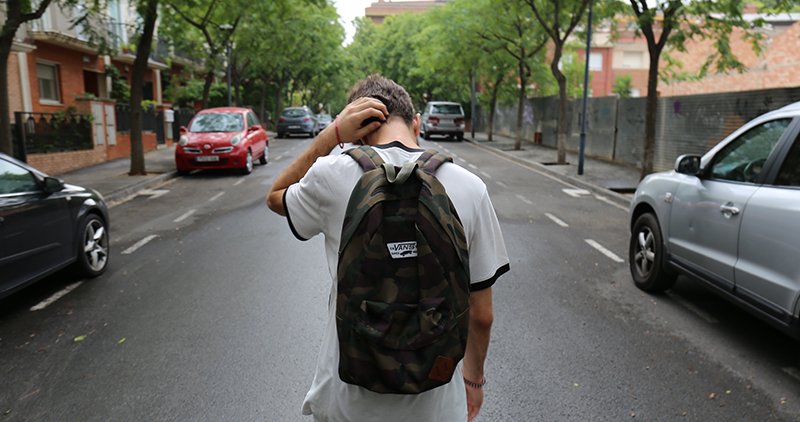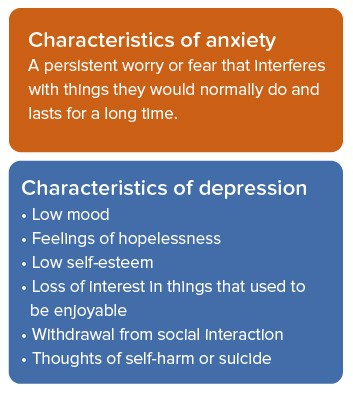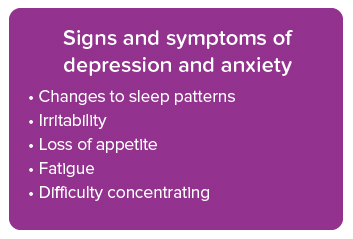
In conversations about mental health, we often hear the words anxiety and depression lumped together. But while the two conditions can have similar signs and symptoms, they also have some distinct features.
“Anxiety is characterised by persistent worry or fear,” says The Kids clinical psychologist Dr Keely Bebbington.

“The worry might be about a specific situation or thing, such as spiders or social situations, or it might be more generalised, where the person worries about many different things.”
It’s normal for children to experience worry – but when it persists for a long period of time and interferes with things that they would normally do it can be a sign of anxiety.
Dr Bebbington says depression can look quite different.
“Depression tends to be characterised by low mood, feelings of hopelessness, low self-esteem, loss of interest in things that used to be enjoyable, withdrawal from social interaction and in some cases, thoughts of self-harm or suicide,” she says.
While the underlying characteristics of depression and anxiety are different, they do share some similar signs and symptoms.
“Changes to sleep patterns, irritability, loss of appetite, fatigue and difficulty concentrating can be symptoms of both anxiety and depression,” says Dr Bebbington.
If a child or teen is displaying any of these signs for a significant period of time – that is, for two weeks or more – depression or anxiety could be the culprit.
Despite their differences, it’s not uncommon for the two conditions to occur simultaneously. In fact, roughly half of all children and adolescents diagnosed with major depressive disorder will have an anxiety disorder as well.
“Anxiety can lead into depression,” says Dr Bebbington.
“People who feel anxious may often experience periods of low mood and a sense of hopelessness about the future, particularly if their anxiety persists for a long period of time.”
The correct diagnosis is important to ensure your child receives appropriate treatment and has the best chance at managing their condition.
If your child is showing signs of anxiety that are interfering with their day-to-day life, or signs of depression that have lasted for more than two weeks, seek help by making an appointment with your GP or paediatrician, who can refer you on to a clinical psychologist.
